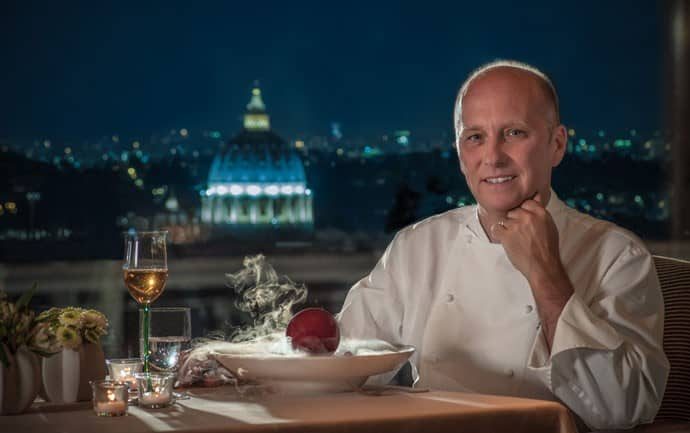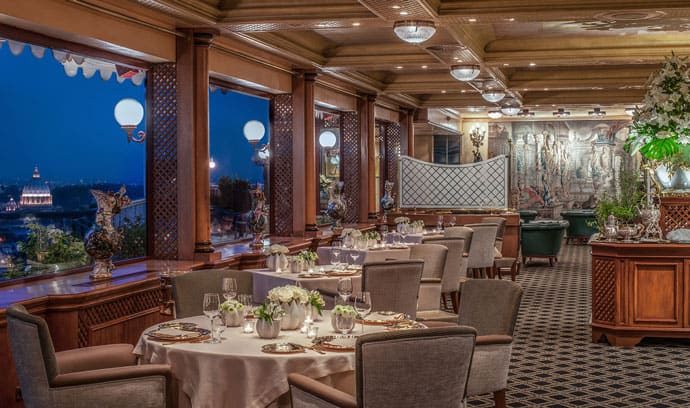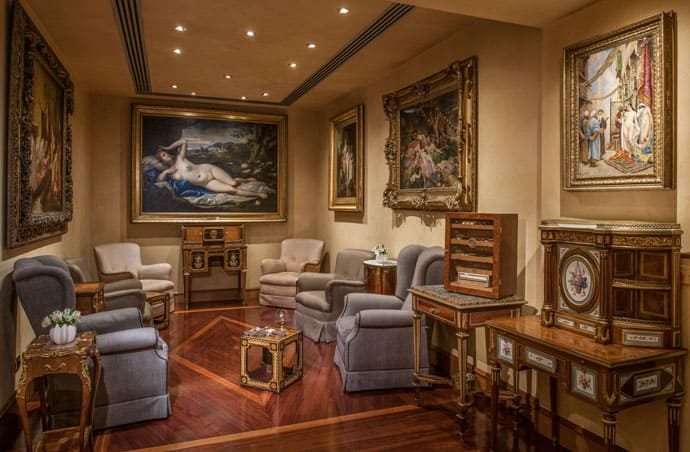We Interviewed Three-Michelin-Star Chef Heinz Beck
Walking hurriedly out of the dining room in his Chef whites, a smiling Heinz Beck greets us on the plush green leather sofas of La Pergola. Unlike Italians who take their time, stop to smell the roses and chat, Beck is always on the go. Whether he is opening new restaurants abroad, or traveling around the world to improve his menus, the constant thread is his drive to improve or “to make better plates” and to push the boundaries of culinary traditions.
Regardless of his hectic schedule, he doesn’t seem stressed, only passionate and excited about what he’s doing. And he has reason to be. Beck has earned 3 Michelin stars for his fine dining at La Pergola, become an authority on Italian cuisine for his “light and healthy Mediterranean cooking ” and was one of the first chefs to recognize the importance of healthy food, working for the past 15 to explore the science of nutrition, digestion and disease- a topic he is particularly passionate about. After a firm handshake and brisk hello, he insists we get right down to it. It’s half six and there is much to do before dinner is served.
What are the “Golden Rules” of Cooking, or the “Italian” food rules you follow?
The “Golden Rule” is: do what you do with art and passion. Then you see if what you make, whatever you are cooking-if you’re making Asiatic, if you are making fusion there are rules of course. There are rules in Mediterranean cooking, which determine the ingredients, how they have to be used, for example if you make a pasta dish with fish then you don’t use cheese. But then- if it is a top chef adding cheese, then it becomes art. So you know it always depends who is doing it what.
One dish that you love to make, have been fond of?
The next one, it’s not invented yet. I am not looking behind, I’m looking only ahead. And since I like to cook and since I am still doing it with passion, I hope I still have a lot to say through my plates, and so this means that next dish will be the better one. And when I say I can’t do better that is the day I will retire.
Words of advice for young chefs?
Don’t do this work [laughs]. No, I’m joking it’s a beautiful work, it’s a beautiful job but you have to have passion, don’t do it if you want to become famous, because most of the chefs don’t become famous and it’s really tough.
What are the challenges you have encountered as a chef in Rome?
The challenges? To give emotions, you know because emotions don’t lie. It’s challenging is to be ahead of the time and find new ways, and not running behind trends.
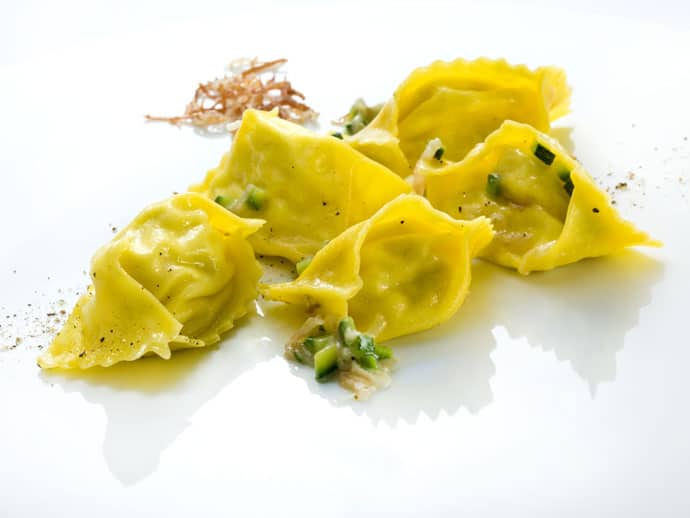
What are your thoughts on shows like MasterChef and the “Celebrity Chef” culture?
[says in Italian] It’s already done.Really?
Yes, it’s done. I don’t have anything against chefs in television, it’s good because it communicates that eating is not only to fill up our stomach, and the messages are sometimes very good messages, not always though. It depends on what kind of program you are watching if it’s entertainment or educational.
I think it’s very important to have food education because a big part of our diseases-modern disease are related to wrong alimentation.
I’ve been working for 15 years in health, I have a research center with the university of medicine here in Rome, and when no one was talking about food about research, I was working on it. For this my cooking is a modern, light and healthy cooking of Mediterranean flavors. And it is very important to say it is healthy, because in the end, I am using all this research day by day for more healthy food.
It’s not that I make diets, because people come to a 3 star Michelin restaurant because they want to enjoy eating. But in this range, I do the most healthy I can do, by using techniques and by going one step ahead day by day.
How do you spend your free time?
I don’t have free time. I have 9 restaurants around the world. I don’t have free time because I’m working 7 days a week.
But when you first got to Rome were there places you went?
It was 20 years ago! 20 years ago! Do you know how much the city has changed in 20 years? If I tell you 20 years ago in Testaccio the nightlife was like this [makes gesture] today you cannot go to Testaccio for nightlife anymore. Where I like to go to in the evening? I don’t have places. I go to Salotto 42. I went there twice last year. It was nice. But it was the only two times in the last 8 years I went out in the evening.
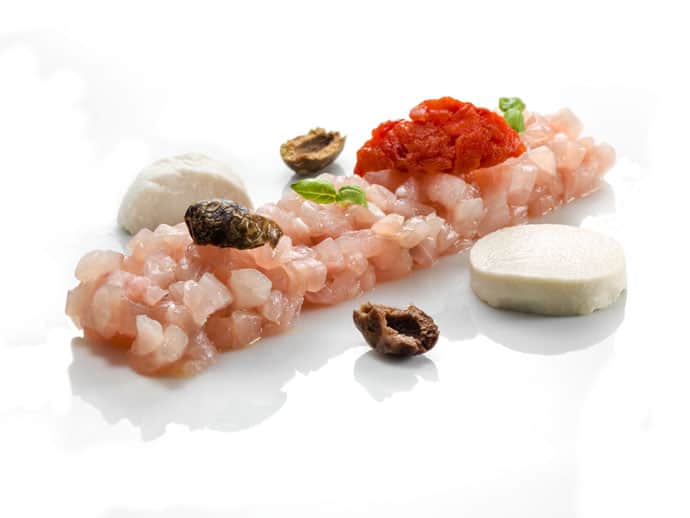
Do you go to any food markets?
I go to Campo de’ Fiori, because when I first got here, I went there to buy for my restaurants, and I still have a rapport with them. Then you can go to Roscioli and have a small little bite-focaccia con la mortadella. It’s still a market that has a little bit of Italian charm in Rome. I’m living in EUR, and I have a small little market where I go to buy my food. And this is it, but this is not a market for tourists.
How would you suggest a foreigner who is new to Rome approach Italian cuisine?
[Shakes his head and switches to Italian] There are no more family Trattorias.No?
Where? Tell me. There are none, tell me one, Perilli? Once there was Felice, there was Paris, there were so many and now there are none. At least I don’t know them.
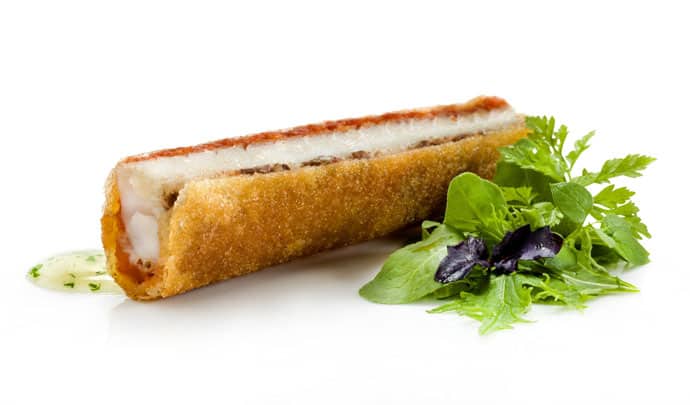
So is Roman cuisine becoming worse?
Not worse, it’s changing, it’s become more ethnic, more International. There are beautiful places here in Rome, I don’t know them. My wife is always saying “you have three stars and you never know where to go.” Although, there is always Ristorante Il San Lorenzo for example. I like it and it’s a beautiful place. For a foreigner who is coming to Rome, the best thing is to look for is the small little Trattorias, where there are still Italians cooking inside–an Italian mama for example. They are very rare and they almost don’t exist anymore. But this is my advice because this is the real Italian cooking, everything else is modern.
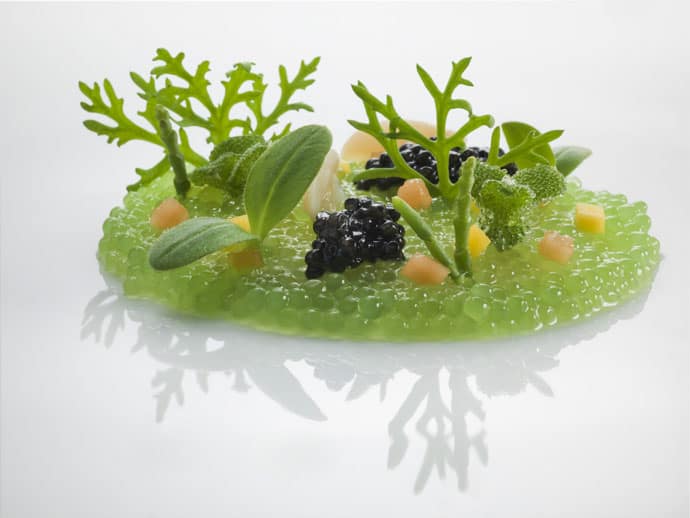
Where do you get your inspiration from?
Everything inspires as me. You know, as far as where the inspiration comes from- the further away, the more different the outcome is. What does this mean? So, I was swimming in a terme, in the winter outside, it was snowing and there were evergreeens.
So by swimming in this water, looking at these evergreens with the snow falling down, I was creating a dish with ricciola, cooked in olive oil and garlic (but at low temperature, because the water was very warm but not boiling) serving it with broccoli ragu and snow cod- inspired by
an experience I had when I was swimming in a terme. You see this is what I say: the further away the inspiration comes from, the more different your plate is.


